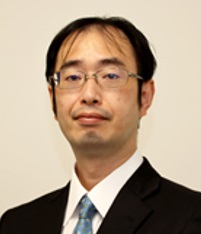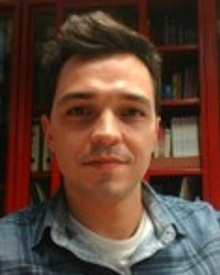Keynote Speakers 2025

Seiji YAMAGUCHI
Associate Professor
Department of Biomedical Sciences, College of Life and Health Sciences,
Chubu University, Japan
Dr. Yamaguchi is an associate professor at the Department of Biomedical Sciences, College of Life and Health Sciences, Chubu University, Japan. He earned his doctorate in Energy Science from Kyoto University. Coauthor of 61 scientific articles, 12 review articles, 11 book chapters, and 13 patents. His work focuses on developing bioactive titanium metals and alloys for orthopedic and dental applications through solution and heat treatment. This method incorporates functional metal ions such as Ca, Sr, Mg, Zn, and Ag into titanium surfaces, imparting bone-bonding and antibacterial properties without cytotoxicity. He has also combined additive manufacturing with this treatment to create porous titanium that promotes early bone ingrowth and sustained antibacterial activity. Additionally, his research revealed that both positively and negatively charged titanium surfaces enhance apatite formation in simulated body fluid. Based on these findings, he developed a custom titanium plate for mandibular bone fixation, commercialized in Japan since 2022.
*
* *
BIOACTIVITY AND ANTIBACTERIAL PROPERTIES IMPARTED TO TITANIUM METAL THROUGH SURFACE CHEMICAL TREATMENT: DEVELOPMENT OF ADDITIVELY MANUFACTURED TITANIUM DEVICES CONTRIBUTING TO HARD TISSUE REGENERATION
We applied various chemical-heat treatments to titanium and its alloys, analyzing surface changes and apatite formation which is crucial for bone bonding. Our findings revealed that electrostatic interactions, driven by positive or negative zeta potential, are key to apatite formation, while micro-/nano-scale surface roughness enhances cell activity. The mixed acid-heat treatment creates a positively charged titanium dioxide with micro-scale roughness, promoting apatite formation, increased ALP activity, and mineralization of MC3T3-E1 cells, with strong in vivo bone bonding. This treatment was applied to the fully custom mandibular reconstruction fixation plate ‘CosmoFix,’ utilizing additive manufactured titanium, which was launched in August 2022. This fixation plate is designed to fit the affected area, eliminating the need for intraoperative bending. On the other hand, Iodine treatment, using NaOH-CaCl2-heat-ICl3, forms a nano-structured iodine-containing calcium-deficient calcium titanate layer with sustained release of calcium and iodine ions. When applied to a titanium porous scaffold (900-600-300 µm pores), it produced a bioactive layer with enhanced apatite formation within 3 days in a simulated body fluid and long-lasting antibacterial activity for 90 days. Such scaffolds show promise for dental implants, spinal devices, and bone grafts.

Anton FICAI
Professor PhD
Faculty of Chemical Engineering and Biotechnologies,
National University of Science and Technology POLITEHNICA Bucharest Romania
Anton FICAI is full professor and PhD advisor in the Faculty of Chemical Engineering and Biotechnologies, National University of Science and Technology POLITEHNICA Bucharest being actively involved in both academic and scientific life of the university. His major academic interests are related to Composite Materials for Medicine, NanoBioMaterials for Tissue Engineering and Drug Delivery Systems. The research interests are much broader, having the chemical approaches in the center, and cover the following topics: tissue engineering; drug delivery systems; multifunctional materials; composite materials; coatings, antimicrobial / antitumoral materials; nanoparticles synthesis and characterization; surface modification; etc. Till now, over 350 scientific papers, from which over 300 ISI papers and 22 books or chapters (including 2 edited books) were published along with 28 patent applications (10 of them being already released). The international recognition of the R&D activity can be highlighted by the multiple invitations for participate as speaker at international conferences, the positions of guest editors, member of the editorial boards of different national and international journals as well as Section Editor in Chief of Coatings. Valedictorian of UPB, former participant and laureate of the National Chemistry Olympiads he was awarded with over 150 Gold Medals, Special Awards or Best Paper Awards and recently, he was awarded with the Special Award for Transfer of the Research Results into Economy by the Ministry of Resort during the First edition of the “Gala Cercetării Româneşti”. He is also full member of The Academy of Romanian Scientists and several professional societies.
*
* *
DRUG DELIVERY SYSTEMS FOR LOCO-REGIONAL AND TARGETED CANCER TREATMENT
Cancer is the second cause of death, worldwide. Considering the high toxicity of the chemotherapeutic drugs, targeted and loco-regional delivery is a need to avoid the severe side-effects. The presentation will be mainly focused on two topics, one related to loco-regional treatment of the bone cancer while the second is related to the targeted delivery of the chemotherapeutic drugs using “trojan horses” with enhanced cellular uptake. In the first case, the localized bone cancer treatment is mainly based on surgery, radio and chemotherapy and considering the surgical intervention for resection of the tumoral tissue, the implantation of the smart drug delivery systems can be a solution to assure loco-regional therapy and to avoid the systemic administration/toxicity. In targeted delivery, the main aim is to develop carriers able to specifically target the tumoral cells and, followed their internalization, to release the chemotherapeutic drug intracellularly. All these smart drug-delivery systems are designed with the major aim to develop personalized therapies for cancer treatment.

Joao NUNES-PEREIRA
Researcher
Centre for Mechanical and Aerospace Science and Technologies
Faculty of Engineering, University of Beira Interior, Covilhã, Portugal
João Nunes-Pereira (JNP) is Assistant Researcher at the Centre for Mechanical and Aerospace Science and Technology (www.aerospace.ubi.pt), at the Faculty of Engineering, University of Beira Inteior, Covilhã, Portugal. JNP is co-author of more than 50 indexed publications (h-index 29), 3 book chapters and more than 50 scientific communications. JNP develops research activities in the field of Materials Science and Engineering, focusing on the design of multifunctional composites based on polymers or ceramics for the development of sensors and actuators to be applied in several industries such as aerospace, automotive, wind turbines, biomedical.
*
* *
FROM DESIGN TO APPLICATION: STRATEGIES FOR DEVELOPING PIEZORESISTIVE COMPOSITES FOR STRUCTURAL HEALTH MONITORING
This study presents a systematic approach to the design, development and characterisation of piezoresistive composites with a focus on their application in Structural Health Monitoring (SHM). Key strategies for material selection, processing methods and optimisation of electrical and mechanical properties are explored following a structured methodology that includes: 1) the growing importance of composites in high-value sectors, with a particular ficus on aerospace, analysing the increasing market value of composite-based industries, highlighting the growing demand for lightweight and high-performance materials and considering the economic, safety and environmental benefits of smart structures. 2) the design of piezoresistive composites considering the influence of reinforcing filler and polymer matrix properties. The effect of filler content on electrical conductivity and percolation threshold versus piezoresistive sensitivity (gauge factor). 3) the characterisation of the developed materials focusing on mechanical performance and electrical response under mechanical loading and determination of gauge factors. The role of cyclic loading and strain sensitivity in assessing their suitability for SHM applications. 4) application to case studies in the aerospace industry, demonstrating the feasibility of piezoresistive sensing in laminated composites, single-lap bonded joints and auxetic sandwich structures. The potential for integrating these materials into real aerospace components for in-situ structural integrity monitoring is demonstrated.